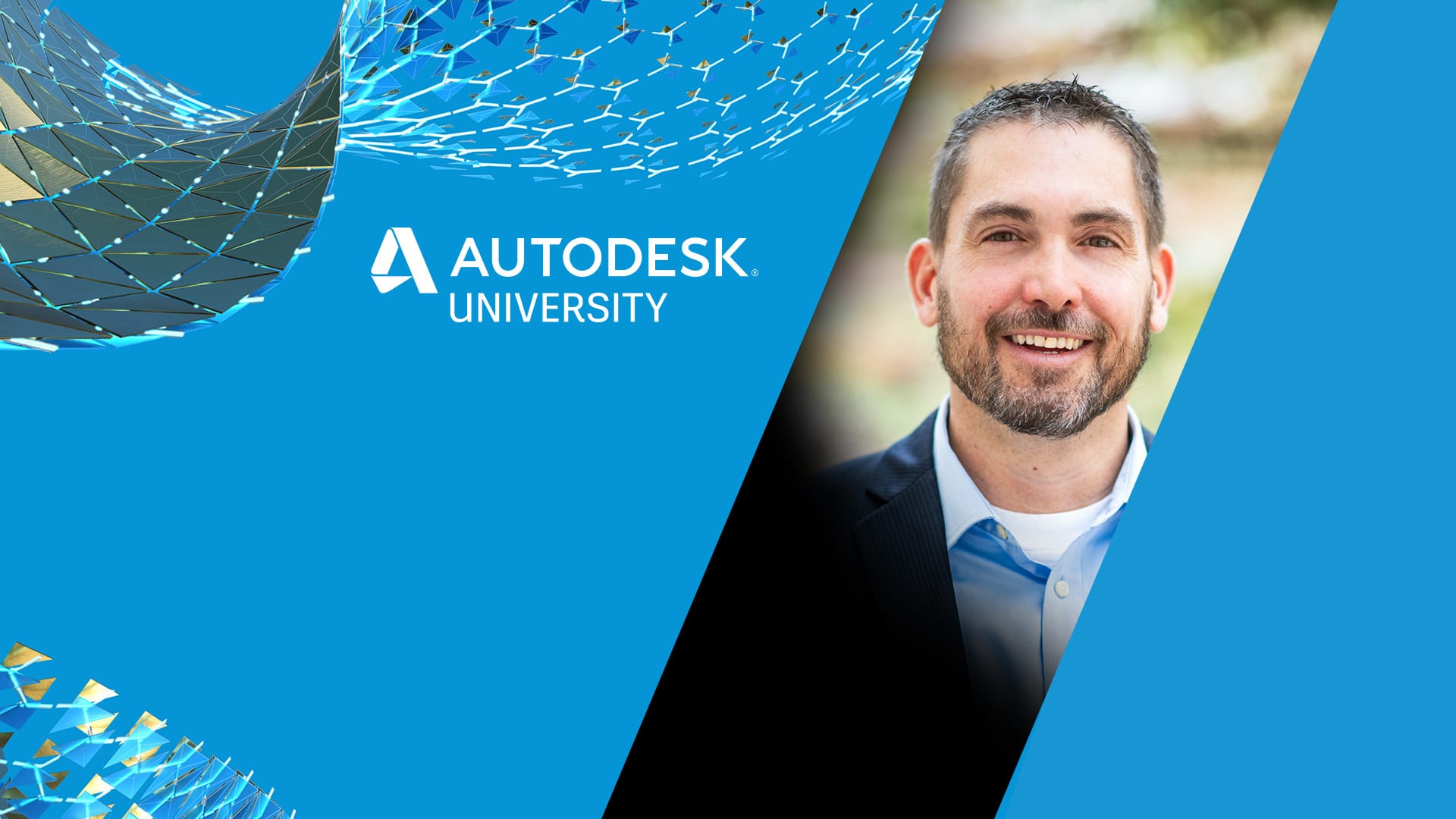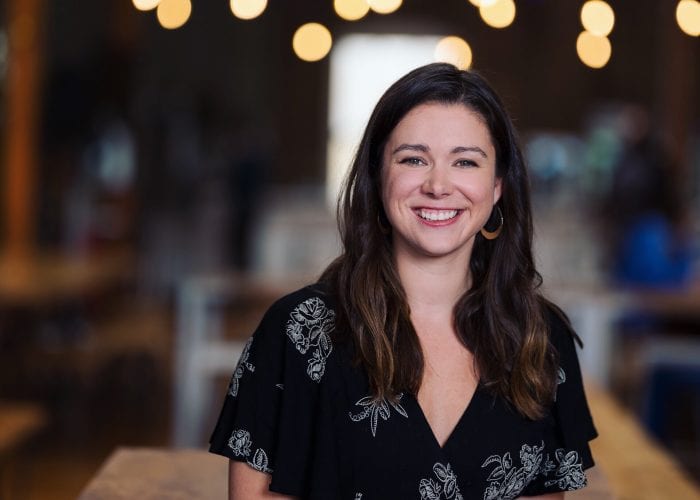
You spend a lot of time and energy planning for the future to ensure the best results possible. Looking ahead can sometimes be easier than looking back, especially these days. Who wants to think about the past when we’re busy trying to build the future? Still, reflecting on past events can provide valuable insights into the future.
As painful as it may be to do a retrospective on 2020, it’s an absolute must for construction. Despite the uncertainties and challenges, there were some incredible wins, successes, and transformations. As an industry, we still have plenty to learn and grow from as we move closer to the new year. That’s why Jeff Sample, Ironman of IT and construction thought leader, is hosting an in-depth panel discussion with construction leaders at Autodesk University 2020. Sample shares his motivation for the event, “I felt like the industry — and really the world itself — just wasn't grasping the impacts of COVID and what was going to come down the pipe.”
We recently caught up with Jeff to learn more about the session he is hosting at Autodesk University, which is happening November 17 – 20 (All free and all virtual!). 2020: The Aftermath emphasizes the need to learn from 2020’s lessons, despite the universal desire to shut the door on the challenging year and move on quickly. Sample invites you to virtually pull up a chair and join him for a reflection on the good, the bad, and everything in between. As you listen to stories from the pandemic and their lessons for moving forward, you’ll hear from industry peers who have tackled the pandemic head-on and come out stronger.
Below, you’ll find three key takeaways from the Ironman of IT himself and what you can expect from his panel discussion. But before we jump in, let’s find out who Sample is and what his career can teach us about construction innovation.
Believe it or not, Jeff Sample’s career in technology began at a ski resort in Vail, Colorado. This role eventually led him to work for a software development company that focuses on technology for resorts. Jeff explains what made this experience so impactful, “That's where I really fell in love with software, in creating software and designing it for people to actually use and get, see an impact on their businesses.”
It wasn’t until after the economic downturn of 2008 that he merged that love for technology solutions with construction. Jeff joined a masonry subcontracting company to lead their digital transformation initiatives. He admits his first year was a challenge; he was just about ready to call it quits when he met the ConTech Trio at a conference. The meeting gave him insights into innovation in the construction industry. “I came back with a renewed sense of like, there's hope for the industry. There's a lot that can be done. There's a lot of things going on outside of here that are fantastic. And I dove in.”
As often happens in the industry, this meeting eventually led to Sample joining JBKnowledge and the ConTechCrew podcast, where he shared insights from contractors on construction and technology. Today, Sample is known as the Ironman of IT, a moniker he’s truly earned with his commitment to Ironman races. His own love for competing in these long-distance triathlon races has fueled his desire to reduce turnover and increase employee engagement in the construction industry.
Sample explains the benefit of effective technology for construction’s most vital resource: employees.
“What I found in construction was that even though there are a lot of the crafts workers in the industry, they don't have nearly enough time to enjoy themselves. They were living to work. I thought we could apply a lot of really good technology to make that simpler, give them time back in their day, to enjoy their families, enjoy their other pursuits.”
Now that you’ve met the Ironman of IT, check out some of the biggest takeaways you can expect to learn in his upcoming Autodesk University panel.
The way Sample sees it, with the right amount of pressure, you can create a diamond. He elaborates, “The unfortunate pressures that COVID placed on us created a little diamond. People dug into their systems and rolled up their sleeves and said, ‘There's no reason we can't fight this, we have to do it.’ And they did it.”
Sure, there were bumps in the road and growing pains along the way, but Sample has noticed people are more comfortable connecting in new ways than ever before. It’s a blessing in disguise for IT leaders who have been leading the way when it comes to technological changes and advancements. COVID-19 has forced us all to pull out our “technological shovels,” as Sample puts it, and dig a bit deeper. We’re embracing communication platforms like Teams, leveraging the collaboration services of BIM 360, and figuring out how to move things around digitally. We’re figuring out how to use different workflow tools we just hadn't leveraged yet to help our organizations. These changes have also made us reconsider the value and purpose of in-person interactions. “I think we're going to appreciate those face-to-face meetings in the future, and we're going to make them more intentional,” says Sample.
We’re all working hard to embrace change and plan for the future. That’s why the 2020: The Aftermath session focuses on how the real world is actually dealing with current problems and issues we’ll continue to see in the future. Sample sums it up so aptly: “This thing's not over. It's not going to be over for a while, and you really have two options. You can try to batten down the hatches, pull a blanket over your head, and hope this thing rides out. Or you can invest, innovate and not just survive, but thrive on the other side of it.”
There are a few critical areas that must be addressed for the industry to thrive. Above all else, Sample says the industry needs brave leadership to drive change. These leaders must be willing to empower their organizations to create cultures that are inviting for people with different backgrounds. Labor shortage continues to be a challenge for construction. To help the global economy and the construction industry, organizations need to embrace cultural fills, rather than just cultural fits.
Sample’s own unique career path has helped him understand the value of diverse perspectives.
“When you're searching for people, you'll hear, we're looking for a cultural fit. I don't think you need a cultural fit. If you have a cultural fit at the end, you end up with a monochromatic group that looks at problems and situations the same. If you look for what you're lacking in your culture, and you bring those people in, it's a cultural fill.”
With cultural fills, organizations can capitalize on the value of robust, diverse frames of reference and thought.
The next step in empowering these diverse perspectives is to upskill workers through technology. Sample encourages leaders to go beyond ease of use when considering technical tools. “How often do you say this stuff has to be easy for my foremen and superintendents to use it? I think that's a judgment of yourself, not of them. Because if they are smart enough to build large buildings or commercial facilities that don't fall down all the time, then they are smart enough to figure out how to use a keyboard and a mouse and look at things.”
It’s also critical to go after the next generation of workers by investing in trade schools, training, legislation, community programs, accreditations, and outreach with educational institutions. After all, the industry is only growing in size as Sample highlights, “It's huge, the sky's the limit. It's the one thing that's never going to change. We're always going to need new roads. We're always going to need more housing. We're always going to need more buildings.”
Sample has noticed a great deal of progress in the industry as people let go of limitations and take advantage of new ways of working. He credits the advancement of toolsets, including the depth and breadth of BIM 360, to making advancement possible during this time of uncertainty.
As industry tools reach new heights, “more and more players are embracing that idea that we're all greater than the sum of our parts. Together we're better and integrating and creating platforms that are the way of the future. I think what 2020 is showing us is that we can do it and that we will do it. And if we apply the right focus, we will achieve it.”
In the future, Sample believes we’ll see the construction industry move away from costs and timelines as the main areas of focus. Carbon neutrality, reusability, and conservation will be just as, if not more, important to thriving in construction. The pandemic has underscored just how crucial it is to flexibly design things that can adapt to changing conditions.
Take the first step to creating your own plan for coming out on the other side of 2020 by joining us for Autodesk University. You’ll find Jeff Sample’s session 2020: The Aftermath and plenty of other insightful, engaging learning opportunities and keynotes. The sessions are 100% free and virtual, but you must register in advance to attend.

May we collect and use your data?
Learn more about the Third Party Services we use and our Privacy Statement.May we collect and use your data to tailor your experience?
Explore the benefits of a customized experience by managing your privacy settings for this site or visit our Privacy Statement to learn more about your options.